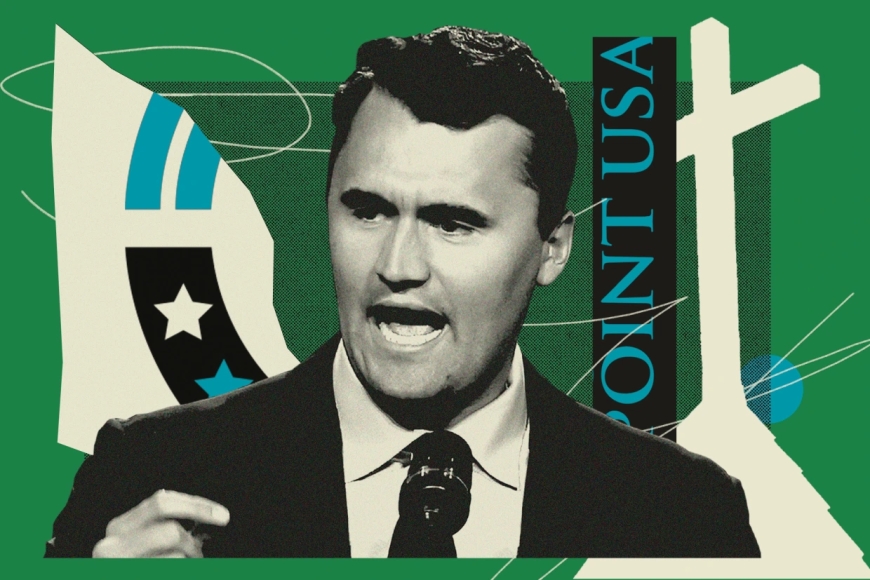Charlie Kirk's Evolution: From Advocate of Secularism to Championing Christian Nationalism

Six years ago, Charlie Kirk, the founder of Turning Point USA, found himself critiquing the evangelical political movement, a stance that now seems distant from his current fervent advocacy for conservative Christian values in American politics.
In 2018, Kirk advocated for a secular worldview in politics, stressing the importance of respecting the separation of church and state. However, his recent assertions assertively reject this foundational principle, labeling it as a "fabrication" and dismissing its presence in the Constitution as "made up by secular humanists."
This transformation, emblematic of the growing embrace of Christian nationalist ideology within the Republican Party during the Trump era, underscores Kirk's evolution into a leading voice urging Christians to intertwine conservative political activism with their religious convictions.
Today, Kirk and Turning Point wield considerable influence within the GOP and the MAGA movement, aligning closely with the Trump campaign and championing conservative causes on a national scale. Kirk's rhetoric now includes rallying against what he perceives as threats posed by the LGBTQ community and promoting Trump as integral to reinstating Christian morality in America.
By framing political engagement as a spiritual imperative and characterizing the election as a battleground for the soul of the nation, Kirk aims to mobilize evangelical voters to secure victories for Trump in key swing states. However, experts caution that such rhetoric, if unmet with electoral success, could breed radicalism among followers, as evidenced by events like the Capitol insurrection on January 6, 2021.
Despite his growing influence, Kirk remains elusive for interviews, and Turning Point USA asserts that Kirk advocates for change through peaceful means. However, his alignment with an apocalyptic political theology, typified by beliefs in divine endorsement of Trump's leadership and the spiritual significance of political activism, raises concerns among observers.
Kirk's narrative aligns closely with the Seven Mountains Mandate, a philosophy urging conservative Christians to ascend to positions of influence across various sectors of society, and echoes sentiments of past movements like the Moral Majority. His efforts, channeled through TPUSA Faith, aim to mobilize churches to champion conservative causes, challenging the traditional notion of a separation between church and state.
While Kirk's transformation may appear calculated to capitalize on shifting cultural norms and political sentiments, critics warn against overlooking the potential consequences of his narrative. His message resonates with a demographic of voters who feel culturally marginalized and view Christian values as under attack, galvanizing them into political action.
As Kirk continues to advance his agenda, emphasizing the spiritual dimension of political engagement, the repercussions of his advocacy remain a subject of intense debate. Whether his vision of a Christian America aligns with broader societal aspirations or risks exacerbating divisions within the nation remains an open question.













































